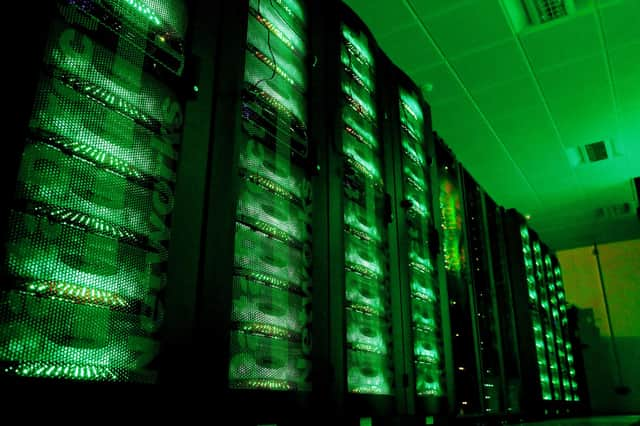Scottish centre for Government supercomputers calls for modellers


The Edinburgh Parallel Computing Centre (EPCC) based at Edinburgh University are world leaders in High-Performance Computing and are looking for volunteers to the UK’s Rapid Assistance in Modelling the Pandemic (RAMP project).The UK’s small team of academic experts in pandemic modelling are currently at full stretch, not only doing their own research on the evolving COVID-19 pandemic, but also providing evidence to inform UK Government policy, through channels such as SPI-M, the Scientific Pandemic Influenza Modelling Group, which reports to SAGE and the Scientific Advisory Group for Emergencies.The call for help has gone out to computer modellers from other areas of expertise like urban traffic planning and financial market modelling.The EPCC run the national supercomputers for the UK Government which are currently being used for the biomedical modeling of viruses and molecules.
Professor Mark Parsons, director of EPCC and Associate Dean for e-Research at the University of Edinburgh said they had been asked to manage the project and provide some of the computing resources.He said: “In the first four hours of the call going onto the Royal Society website over the weekend we received over 100 applications.“It’s very clear that scientists around the UK and the world wanted to help and this is scientists managing to co-ordinate their efforts rather than everybody doing the same thing.“The key thing is a bit of co-ordination.”Professor Parsons explained the concept of modelling in the computing and scientific world is to create a model of the world around us.He said: “It could be people walking down the street it could be a car or whatever but in this case it’s how people are meeting and transmitting the virus between themselves.“So, you create a model of that and then you simulate what happens over time.“So you let time run forward and you see people meet and interract or not like we are now - so you can predict what’s going to happen in the future.“When you talk about simulation in modelling that’s what you’re talking about. “This is not to say the modelling that’s being done at the moment is bad - there are many different ways of thinking about these problems and bringing in different data. “This call from the Royal Society is intended to do that - to bring more people who understand modelling in to help the modelling effort.”He added: “Up until now the modelling has looked at distributions and trying to predict what will happen.“One of the things we’ve talked about doing is agent-based modelling, so you effectively model people and their interaction and try to make predictions from that.“It’s a different way of doing modelling. This has been driven by Professor Mike Cates at the University of Cambridge.“We hope this allows us to play with different scenarios.“I think Britain is doing modelling really well and if you look around the world people are looking at the work done by Professor Neil Ferguson and his team at Imperial College London.”
